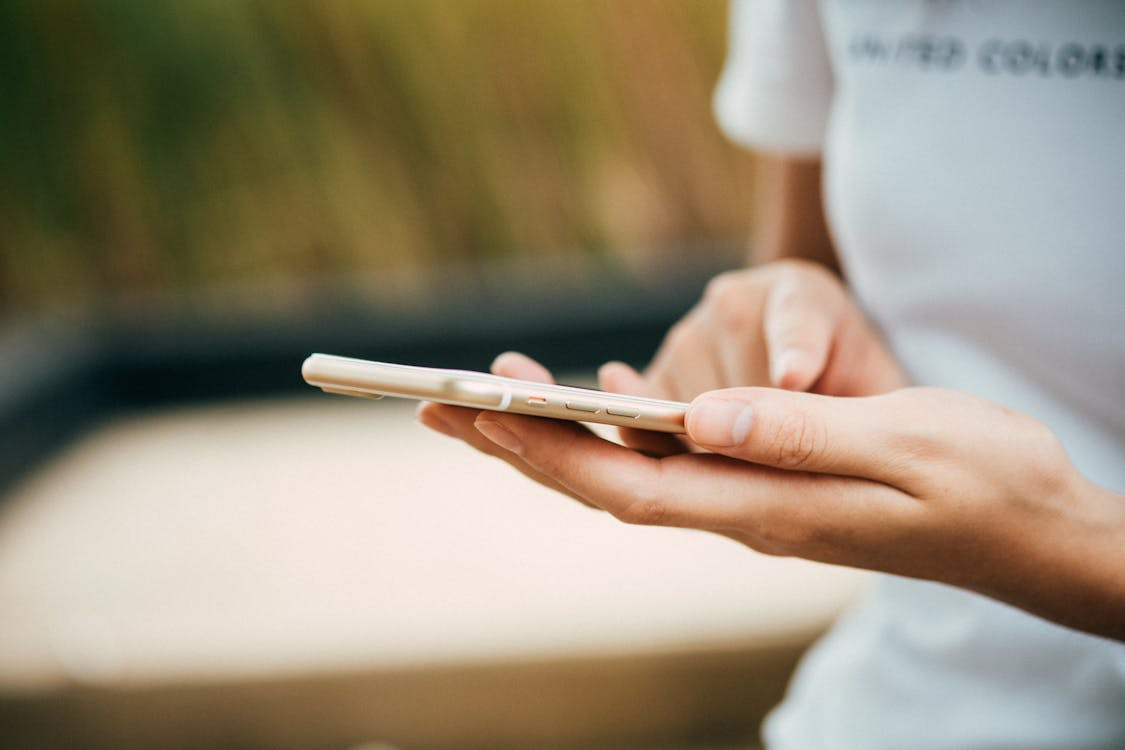
We’ve all been there—stuck next to someone blasting their phone at full volume in a café, on the train, or in a waiting room.
The instinct is usually to grit your teeth and endure it.
But one woman’s cheeky approach has caught the attention of frustrated Australians everywhere.
The moment that sparked a viral reaction
A woman known as Lu recently shared her ingenious way of dealing with inconsiderate phone users, and it resonated widely.
The incident took place in what appeared to be a café, where Lu sat near a stranger watching videos at maximum volume.
Rather than fuming silently or politely asking—which she admitted hadn’t worked before—Lu took a bold yet clever approach.
She calmly asked the man what he was watching, and when he replied it was ‘just a video,’ she made her move.
'Can I watch it with you?' she asked.
When the stranger mentioned there were only two minutes left, Lu delivered her masterstroke: 'Oh, two minutes? Then you've got time for me to watch then. Because I thought you wanted to share what you were watching with us. Because we can totally hear it.'
The hint was clear, and the man immediately turned the volume down.
A growing public nuisance
Lu’s encounter highlighted a much wider problem.
Research shows that 79 per cent of adults encounter loud or annoying mobile phone behaviour in public at least occasionally, with 30 per cent saying they frequently experience it.
Experts describe this as an 'outright epidemic' of people playing videos, music, and games without headphones.
In Australia, loud phone calls and video viewing aren’t specifically prohibited by law, though Sydney’s intercity trains have introduced 'quiet carriages' where commuters are advised to keep phones silent and use headphones.
'Taking a call on a loudspeaker around others can unintentionally send the message that you're not considering their presence or personal space.'
Why public courtesy is declining
The rise in inconsiderate phone behaviour is linked to increased phone addiction.
A 2023 study found 57 per cent of Americans admitted to being addicted to their phones, and platforms with highly engaging content, like social media video apps, keep people glued to screens even in public.
Psychologists note that humans often model behaviour from others, especially when norms aren’t well established.
This has created a cycle where loud, inconsiderate behaviour becomes increasingly normal.
The psychology behind Lu’s technique
Lu’s approach works because it applies social pressure without confrontation.
Professor Jay Van Bavel from New York University explained this as a 'Covid-era 'norm erosion' that can only change if there’s sufficient norm enforcement'.
By asking to join in, Lu held up a mirror to the behaviour in a humorous, non-aggressive way.
Other approaches that work
Lu’s method isn’t the only solution.
Australians report success with:
The direct approach: 'Excuse me, would you mind using headphones?'
The helpful stranger: 'I've got spare earbuds if you need them'
The mirror technique: Playing your own content loudly to make a point
The practical approach: Simply moving away and choosing your battles
Experts caution that confrontational methods can backfire, as it may be intimidating to challenge a stranger.
A generational difference
There’s a notable generational divide in tolerance for public phone use.
Research shows 90 per cent of adults aged 18 to 29 see public phone use as acceptable, compared to just 54 per cent of those aged 65 and older.
Dealing with loud phone users: A practical guide
Stay calm and assess whether it’s worth addressing
Try the 'join in' approach like Lu did
Offer headphones if you have spare ones
Use humour when possible: 'That looks interesting—mind if I listen?
Know when to walk away for your own peace of mind
Remember that some people may have hearing difficulties
Choose your battles—not every situation requires intervention
When confrontation isn’t the answer
Not everyone using speakerphone is being rude.
People with hearing aids may experience feedback when holding a phone to their ear and need speakerphone.
Others may have accessibility needs that aren’t obvious.
Reading the situation is key.
A gentle approach like Lu’s often works when someone is unaware of their impact, while prioritising safety is best if a person seems deliberately inconsiderate or aggressive.
A call for common courtesy
Lu’s viral moment sparked a conversation about etiquette in the digital age.
Experts are clear: avoid speakerphone in public, including planes, trains, subways, rideshares, waiting rooms, lines, and restaurants.
The solution doesn’t require laws or enforcement—just basic consideration for others.
Lu’s clever approach shows that speaking up with humour and tact can make a difference.
What This Means For You
Lu’s approach showed how a humorous and clever tactic can effectively deal with loud public phone users.
Research highlights that disruptive phone behaviour is common, and Australia has few legal measures to address it, leaving everyday people to find practical solutions.
Social and psychological factors mean inconsiderate phone use has become increasingly normal, making it more challenging to maintain peace in public spaces.
Approaches like gentle confrontation, using humour, or simply choosing when to walk away have proven effective for managing these situations.
For the audience, this demonstrates that with a bit of wit and confidence, anyone can reclaim calm in public areas without escalating tensions, making outings like cafés, trains, or waiting rooms far more enjoyable.
Lu’s clever approach shows that a little tact and humour can resolve noisy phone situations in public.
Sometimes, though, encounters with inconsiderate behaviour can be far more surprising and dramatic than expected.
For a real-life example of a commuter causing a stir on public transport, check out this story.
Read more: Unbelievable! Commuter shocks passengers with bizarre public transport behaviour
Ill watch it with you: Woman's ingenious hack for making people stop watching loud videos on their phones in public lauded — Reports on a woman using a humorous tactic to get a stranger to lower the volume of their phone video in a café.
https://www.skynews.com.au/lifestyl...d/news-story/3368ccb173d9acc028f89cac3c1b17a5
Chapter 3: When it is acceptable — or not — to use cellphones in public spaces — Highlights that 79% of adults encounter loud or annoying cellphone behaviour in public at least occasionally.
https://www.pewresearch.org/interne...le-or-not-to-use-cellphones-in-public-spaces/
Should noisy phone calls on public transport be illegal? - Law Society Journal — Notes that loud phone calls and video viewing are not specifically prohibited anywhere in Australia.
https://lsj.com.au/articles/should-noisy-phone-calls-on-public-transport-be-illegal/
Should noisy phone calls on public transport be illegal? - Law Society Journal — Mentions that Sydney's intercity trains have 'quiet carriages' advising commuters to keep phones silent and use headphones.
https://lsj.com.au/articles/should-noisy-phone-calls-on-public-transport-be-illegal/
A not-so-quiet place: Why is no one using headphones in public anymore? — Reports that 57% of Americans admitted to being addicted to their phones.
https://theweek.com/culture-life/personal-technology/headphones-phone-etiquette
A not-so-quiet place: Why is no one using headphones in public anymore? — Explains that addictive algorithms and doomscrolling keep people glued to technology even in public.
https://theweek.com/culture-life/personal-technology/headphones-phone-etiquette
Many loathe public speakerphone calls, so why do people do it? | KTLA — Explains that humans learn behaviours from observing others, especially where social norms are weak.
https://ktla.com/news/nationworld/many-loathe-public-speakerphone-calls-so-why-do-people-do-it/
A not-so-quiet place: Why is no one using headphones in public anymore? — Professor Jay Van Bavel describes 'Covid-era norm erosion' and the need for sufficient norm enforcement.
https://theweek.com/culture-life/personal-technology/headphones-phone-etiquette
A not-so-quiet place: Why is no one using headphones in public anymore? — Notes that confronting strangers can be intimidating due to potential violent or explosive reactions.
https://theweek.com/culture-life/personal-technology/headphones-phone-etiquette
Chapter 3: When it is acceptable — or not — to use cellphones in public spaces — Shows younger adults are more tolerant of public phone use than older adults.
https://www.pewresearch.org/interne...le-or-not-to-use-cellphones-in-public-spaces/
Many loathe public speakerphone calls, so why do people do it? | KTLA — Notes that people using hearing aids may require speakerphone due to feedback issues.
https://ktla.com/news/nationworld/many-loathe-public-speakerphone-calls-so-why-do-people-do-it/
10 Phone Etiquette Rules — Advises against using speakerphone in public, especially for video calls or watching content.
https://www.today.com/life/phone-etiquette-rcna95939
What’s your take on Lu’s approach—have you ever used a clever tactic to handle inconsiderate phone users?







